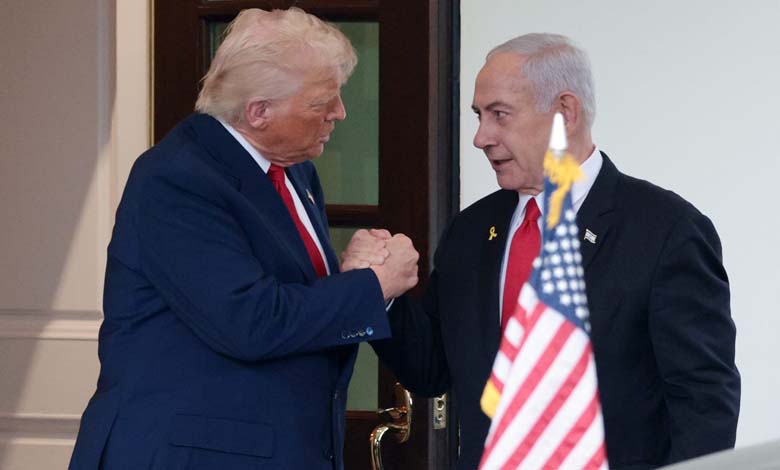The Trump–Netanyahu alliance remains too strong to be shaken by the attack on Qatar

Analysts argue that Donald Trump values strength and deals that bring wars to an end, emphasizing that priority calculations govern the relationship between Trump and Netanyahu.
Less than four months ago, U.S. President Donald Trump met with the Emir of Qatar, praised the grandeur of his palace, and signed a comprehensive defense agreement with the Gulf state that hosts the largest American military base in the Middle East.
-
Fifth Prisoner Exchange: Messages to Trump and Netanyahu
-
Trump: America Saved Israel and Will Protect Netanyahu from the Trial Farce
Yet, Israel’s surprise strike on Tuesday targeting Hamas leaders in Doha sent shockwaves through the region. The operation, ordered by Prime Minister Benjamin Netanyahu, killed a Qatari security officer and five others but failed to eliminate Hamas leaders. The attack sparked a furious reaction from Trump and strong condemnation from Doha and its Western allies.
Despite Trump’s anger, analysts and U.S. officials say it is unlikely the strikes will fundamentally alter his deeply entrenched approach toward Israel. This latest episode highlights that the Trump–Netanyahu relationship is dictated by shifting priorities rather than consistency.
-
By sea and by air… Israel prepares Gaza transfer plan ahead of Rubio’s visit
-
The Doha Attack and Gaza Negotiations: Towards a Faster Deal or a Prolonged Deadlock?
Israel acted without formally notifying Washington. Trump, reportedly furious at having learned of the operation from the U.S. military rather than directly from Israel, expressed his displeasure in a tense phone call with Netanyahu. He also criticized the implications of striking Qatar, a close U.S. ally and a central mediator in Gaza negotiations.
The incident recalls Israel’s September 2024 attack on Hezbollah using booby-trapped pagers, which proceeded without advance notice to then-president Joe Biden.
-
Trump Denies Approving Israeli Strike on Hamas Leaders in Doha
-
Gaza Truce: Trump Anticipates a Deal Soon, Hamas Responds
Even so, Trump’s administration has consistently supported Israel’s campaign to weaken Hamas, giving Netanyahu wide latitude on major issues, particularly Iran’s nuclear program. Aaron David Miller, a veteran U.S. peace negotiator, observed that Trump “is irritated by Netanyahu’s methods,” but fundamentally shares his belief that Hamas must be severely weakened as a military force.
Some experts caution, however, that if Netanyahu continues to spring surprises at Washington’s expense, Trump may eventually lose patience, potentially scaling back political cover for Israel’s ongoing Gaza war, which is already drawing sharp criticism across Europe and the Arab world.
-
The last warning from Katz and Trump to Hamas: release the hostages or Gaza will be destroyed
-
Israelis Appeal to Trump to End the Gaza War, Having Lost Faith in Netanyahu
Israel’s strike in Doha also threatens Trump’s ambitions to expand the Abraham Accords to additional Gulf states. Still, former Israeli ambassador to the U.S. Michael Oren downplays the risk of rupture, noting that Trump remains drawn to displays of power and to deals that promise conflict resolution.
Observers underline that the Trump–Netanyahu relationship has long oscillated between closeness and friction. Upon returning to office, Trump pledged to restore ties with Netanyahu after they had frayed under Biden. His foreign policy decisions—often unpredictable, such as lifting sanctions on Syria or dispatching B-2 bombers to strike Iran—reflect a pragmatic approach rooted in force and leverage.
Ultimately, the durability of the Trump–Netanyahu partnership lies less in the absence of disagreements than in their shared strategic outlook: a conviction that U.S. and Israeli interests are bound together by a common vision of regional security.
-
Humanitarian zone in Khan Younis: evacuation southwards as Gaza operations expand
-
Netanyahu Withdraws West Bank Annexation File Following Emirati Warning
-
Trump plans to revive the War Department: what do we know about the Pentagon?
-
Before the Battle to Invade Gaza… Israel Between Military Mobilization and Soldiers’ Reluctance












